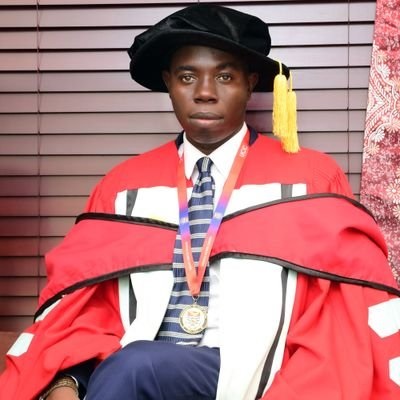Dr. Richmond Yeboah
A lecturer at the Cape Coast Technical University, Dr. Richmond Yeboah, has commended the government for the great progress made by the country toward accessible, high-quality education in Ghana.
According to him, available data indicates an increase in enrollment from elementary school to tertiary level, as well as an improvement in learning outcomes, as a result of the government’s large increase in education investment and reform programmes.
Dr. Yeboah, who is also a Development & Governance Analyst with the Romy Consultancy Group, told DAILY GUIDE in an exclusive interview that the government’s ambitious reforms are transforming the education sector.
He said the introduction of Free Senior High School for all students, TVET and STEM programmes, comprehensive national teacher education reform initiatives, and a change in the Ghanaian pedagogical paradigm that prioritises collaborative, student-centred learning are among these reforms.
The university don was impressed by the ingenuity behind the pre-engineering programme for non-Science students which was introduced by the Education Minister, Dr. Yaw Osei Adutwum.
The programme offers Business, General and Visual Arts students, who have completed SHS and desire to be engineers, to a one-year pre-engineering programme at the University of Mines and Technology (UMaT) and the Pentecost University leading to admission into tertiary engineering programmes such as robotics and automation, electrical & electronic engineering, mechanical engineering, computer science & engineering, civil engineering, and Information Technology among others.
“This is transformational and the government and the Minister for Education need commendation for this initiative which will encourage inclusiveness in our education and also promote the study of Science, Technology, Engineering and Mathematics (STEM) in the country,” Dr. Yeboah indicated.
“This intervention by the Ministry to transform education in the country and to respond to the needs of industry players and to be competitive in the market sphere is commendable and it is important for all stakeholders to support the paradigm shift to provide a career path for students to respond to the industrial revolution and contribute to national development,” he added.
He continued, “It takes a visionary leader to front such initiatives.”
“The future benefits to the country will be huge. Dr. Yaw Osei Adutwum clearly understands his job and has in-depth knowledge in education,” he stated. Early this year, the Education Minister announced the full operationalisation of seven STEM schools.
They are the Awaso STEM School in the Western Region, Abomosu STEM School in the Eastern Region, Bosomtwe Girls STEM School and Bosomtwe STEM School, both in the Ashanti Region, while the Koase Sec/Tech (already existing school) is located in the Ahafo Region, the Accra High School (Engineering only) in the Greater Accra Region and the Kpesemkpe STEM School (newly constructed) in the North East Region.
TVET
Dr. Yeboah stated that another transformation is in the promotion of Technical and Vocational Education and Training (TVET) programmes, and added that all technical universities and institutions now have world-class laboratories that satisfy industry standards, and that the Amatrol Labs are outfitted with worldwide industry-standard training methods that prioritise hands-on skill training.
The lecturer intimated that these learning systems integrate smoothly into any manufacturing or production setup and span multiple technical domains, making them equally helpful for technicians, engineers, production employees, and anybody in need of further knowledge and abilities.
He said the Takoradi Technical University had benefited with Petro – Chemical and Hydraulic Teaching Systems, while the Kumasi Technical University was installed with Mechatronics Teaching Systems, thus Mechanical and Electronics teaching Systems combined, coupled with the installation of a computer laboratory that is internet ready for multimedia.
At the Koforidua Technical University, it was supplied with Mechanical, Electrical /Electronics and Auto Engineering Teaching Systems, whereas the Cape Coast Technical University benefited from the supply of Mechanical, Electrical / Electronics and Auto Engineering Teaching Systems.
Accra, Wa, Ho and Tamale Technical Universities were supplied with Mechanical, Electrical / Electronics and Auto Engineering Teaching Systems, he said.
According to Dr. Yeboah, the new educational transformation is empowering learners with knowledge, skills, values, and attitudes to be resilient, adaptable, and prepared for the uncertain future while contributing to human and planetary well-being and sustainable development.
“The Government, particularly, the Minister of Education should be commended for the transformative education which is ensuring that all learners have unhindered access to and participation in education,” he posited.
“Even though not adequate for research, the government has increased research allowances by 200%,” he disclosed.
The lecturer said Technical and Vocational Education and Training (TVET) continues to be a critical engine in Ghana’s industrialisation strategy, and the government has demonstrated its commitment to ensuring that individuals have the practical skills required for success.
The TVET sector has suffered an image crisis over the years due to a public perception of being a refuge for students who are not academically endowed, but Dr. Yeboah believes that focusing on the TVET landscape will help to provide the manpower for practical skills required for Ghana’s industrial drive.
On the establishment of the state-of-the-art TVET centres in some regions, he noted that these centres will provide young people with the skills that will make them employable, enhance their livelihoods, and create wealth.
By Ernest Kofi Adu


